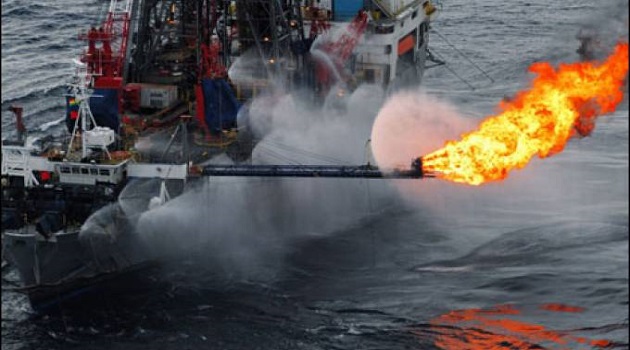Government has attributed the inability of some firms awarded oil blocks to meet targets to the International Tribunal for the Law of the Sea (ITLOS) ruling as it reviews dormant petroleum agreements for termination.
Answering questions on the floor of Parliament Tuesday standing in the name of Adansi Asokwa MP KT Hammond, a deputy Energy minister Owureku Aidoo said five petroleum agreements were affected by the ITLOS ruling.
The agreements include; Expanded Shallow Water Tano Block, Offshore South West Tano Block, Central Tano Block, South Deep Water Tano block and South West Saltpond Block.
“These companies have had their initial exploration periods extended to cater for the time lost as a result of the ITLOS ruling. Work programmes are therefore ongoing for most of them in the initial exploration period because of the extensions,” he stated.
Fourteen oil blocks were awarded between January 2009 and December 2016. One was relinquished (Offshore Accra Contract Area Petroleum Agreement initially operated by Tap-Oil) while five were affected by the ITLOS ruling.
According to him, none of the remaining 13 companies has fulfilled its minimum obligations within the initial exploration period and no discoveries have been made.
However, they have carried out their obligations to different degrees with some having reprocessed the existing data, acquired new 3D seismic data and preparing to drill exploratory wells while others have only reprocessed or reprocessing the existing data, he stated.
He said the Energy Ministry in collaboration with the Petroleum Commission is reviewing dormant petroleum agreements.
He said depending on the outcome a decision will be made whether or not to abrogate the agreements.
Questioned on when the review will end, he retorted that he is not able to give a timeline suffice to say that “the job is going on.”
The International Tribunal for the Law of the Sea (ITLOS) in September 2017 ruled that Ghana did not violate the right of Ivory Coast by drilling oil around the maritime area shared by both countries.
The court also ruled that “Ghana did not violate the provisional measures prescribed by the Special Chamber in its Order of 25 April 2015.”
The judgment read by Judge Boualem Bouguetaia, President of the Special Chamber also said “there is no tacit agreement between the Parties to delimit their territorial sea, exclusive economic zone and continental shelf both within and beyond 200 nm, and rejects Ghana’s claim that Côte d’Ivoire is estopped from objecting to the “customary equidistance boundary”.
Source: Ghana/Starrfm.com.gh/103.5FM




